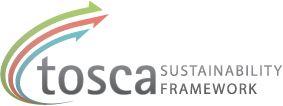Value chain activities
Navigation by keywords
Develop strategy and organisation for sustainability work
By Ann-Christin Pålsson, Johan Widheden, Sofia Petersson, Johan Tivander & Ulrika Palme
 A sustainability policy and strategy is the basis for the work with sustainability in the supply chain. This together with a clear organisation, including roles and responsibilities for the work, forms the foundation for implementation of activities towards a sustainable business.
A sustainability policy and strategy is the basis for the work with sustainability in the supply chain. This together with a clear organisation, including roles and responsibilities for the work, forms the foundation for implementation of activities towards a sustainable business.
The work with developing strategy and organizing work can include the following tasks:
- Identify the important sustainability aspects of the company´s operations and products
- Formulate policies that expresses the company´s commitment and priorities towards sustainability
- Create a strategy that provides direction to the different parts of the company, to integrate sustainability considerations at different levels
- Establish an organization for the sustainability work in terms of roles, responsibilities and resources
- Implement the sustainability strategy across the company
Generally, the work with sustainability within a company is cross-functional and interdisciplinary, which means that well functioning communication and cooperation is important. Different functions have different roles in the work. Management should have the overall responsibility for defining and adopting policies, strategies and organisation, whereas the different parts of the company provides input to the development, and is responsible for implementation. For example:
- Sourcing contribute with sustainability aspects concerning raw materials and suppliers, i.e. how to handle the upstream parts of the supply chain
- Manufacturing contribute with relevant aspects concerning the sustainability of the company’s own operations, i.e. the activities over which the organisation has direct control.
- Marketing and sales contribute with identifying customer & consumer expectations and trends concerning sustainability, i.e. how to handle the downstream parts of the supply chain
- Research & development contribute with assessments and analysis of the overall sustainability aspects of the products, use information from Sourcing and Sales and cooperate with suppliers and customers in order to develop more sustainable products.
In the getting started guide for Life Cycle Assessment (LCA), some information is available on how LCA can be applied to support the work with strategy development.
Examples:
Formulate policies
Creating strategy
Organize work
Implementation

